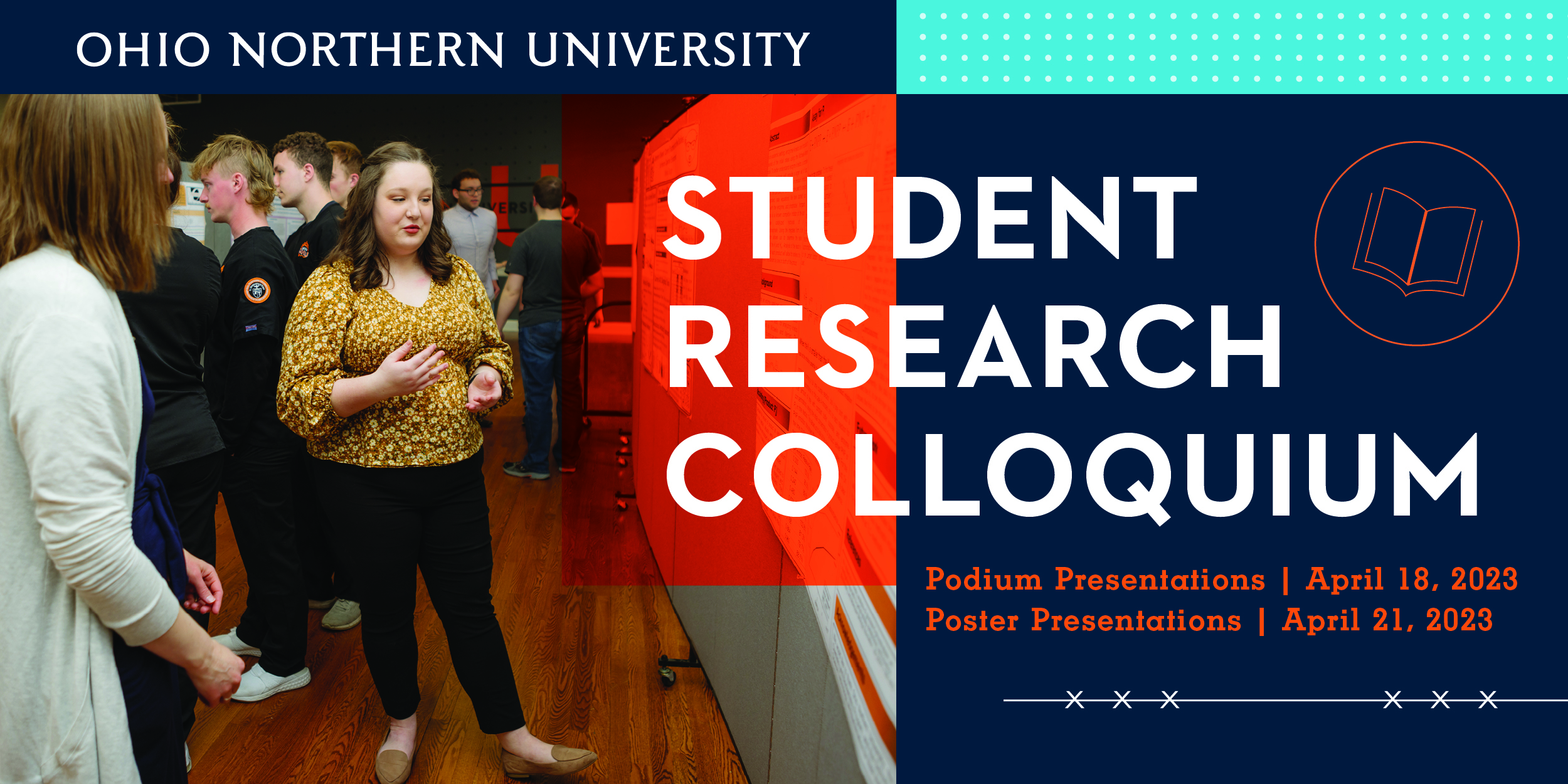Advisor(s)
Phillip R Zoladz
Confirmation
1
Document Type
Poster
Location
ONU McIntosh Center; McIntosh Activities Room
Start Date
21-4-2023 10:00 AM
End Date
21-4-2023 10:50 AM
Abstract
Given the recently renewed interest in using psychedelics to aid in the treatment of psychological disorders, we aimed to examine the impact of psilocybin, a 5-HT2A agonist, on learning and memory in rodents. Previous work has demonstrated that psilocybin and other 5-HT2A agonists can enhance fear conditioning, fear extinction, and novel object recognition (NOR). Thus, we predicted that low doses of psilocybin would enhance inhibitory avoidance (IA) and NOR memory. In the first experiment, adult male and female Sprague-Dawley rats underwent step-through IA training (involving 0.45, 0.65, or 1 mA scrambled footshock) and were injected intraperitoneally (i.p.) with vehicle (0.9% saline) or psilocybin (1 mg/kg) immediately afterward. Rats were tested for their IA memory two days later. In the second experiment, adult male and female Sprague-Dawley rats were acclimated to an open field apparatus for 5 minutes on Day 1. The next day, the rats were given i.p. injections of vehicle or psilocybin (0.1 mg/kg) 10 minutes before undergoing NOR training, during which they were exposed to two replicas of an identical object for 3 minutes. On Day 3, one of the objects from NOR training was exchanged for a novel object; rats were exposed to this novel object and a new replica of the object from Day 2 (i.e., familiar object) for 5 minutes. The results showed that psilocybin had no significant impact on IA memory but enhanced novel object recognition memory in both males and females. The differential impact of psilocybin on IA memory and novel object recognition could be explained by the different doses of psilocybin or the different times of drug administration used for each task. Alternatively, they may suggest that psilocybin exerts distinct effects on different types of learning.
Recommended Citation
Miller, Claire E.; Del Valle, Colin R.; Naylor, Margaret M.; Sparkman, Heather R.; Cruea, Connor M.; Rice, Rachel E.; Bramlage, Brooke E.; Puppel, Lillianna P.; Brown, Madison L.; Al-Olimat, Aleece K.; Dietz, Elizabeth S.; and Zoladz, Phillip R., "Low-dose psilocybin enhances novel object recognition but not inhibitory avoidance in adult rats" (2023). ONU Student Research Colloquium. 53.
https://digitalcommons.onu.edu/student_research_colloquium/2023/posters/53
Level of Access
Open Access
Open Access
Available to all.
Included in
Behavior and Behavior Mechanisms Commons, Biological Psychology Commons, Other Pharmacy and Pharmaceutical Sciences Commons
Low-dose psilocybin enhances novel object recognition but not inhibitory avoidance in adult rats
ONU McIntosh Center; McIntosh Activities Room
Given the recently renewed interest in using psychedelics to aid in the treatment of psychological disorders, we aimed to examine the impact of psilocybin, a 5-HT2A agonist, on learning and memory in rodents. Previous work has demonstrated that psilocybin and other 5-HT2A agonists can enhance fear conditioning, fear extinction, and novel object recognition (NOR). Thus, we predicted that low doses of psilocybin would enhance inhibitory avoidance (IA) and NOR memory. In the first experiment, adult male and female Sprague-Dawley rats underwent step-through IA training (involving 0.45, 0.65, or 1 mA scrambled footshock) and were injected intraperitoneally (i.p.) with vehicle (0.9% saline) or psilocybin (1 mg/kg) immediately afterward. Rats were tested for their IA memory two days later. In the second experiment, adult male and female Sprague-Dawley rats were acclimated to an open field apparatus for 5 minutes on Day 1. The next day, the rats were given i.p. injections of vehicle or psilocybin (0.1 mg/kg) 10 minutes before undergoing NOR training, during which they were exposed to two replicas of an identical object for 3 minutes. On Day 3, one of the objects from NOR training was exchanged for a novel object; rats were exposed to this novel object and a new replica of the object from Day 2 (i.e., familiar object) for 5 minutes. The results showed that psilocybin had no significant impact on IA memory but enhanced novel object recognition memory in both males and females. The differential impact of psilocybin on IA memory and novel object recognition could be explained by the different doses of psilocybin or the different times of drug administration used for each task. Alternatively, they may suggest that psilocybin exerts distinct effects on different types of learning.

